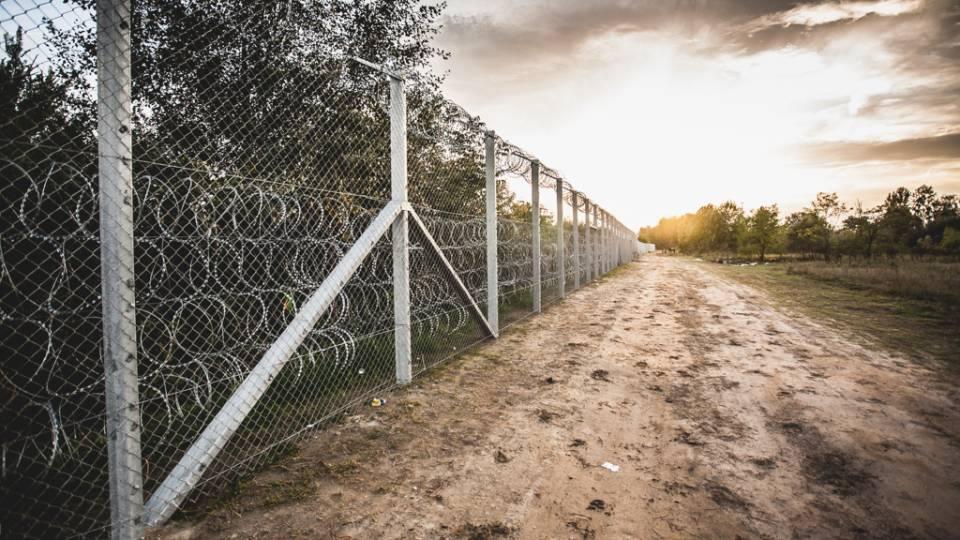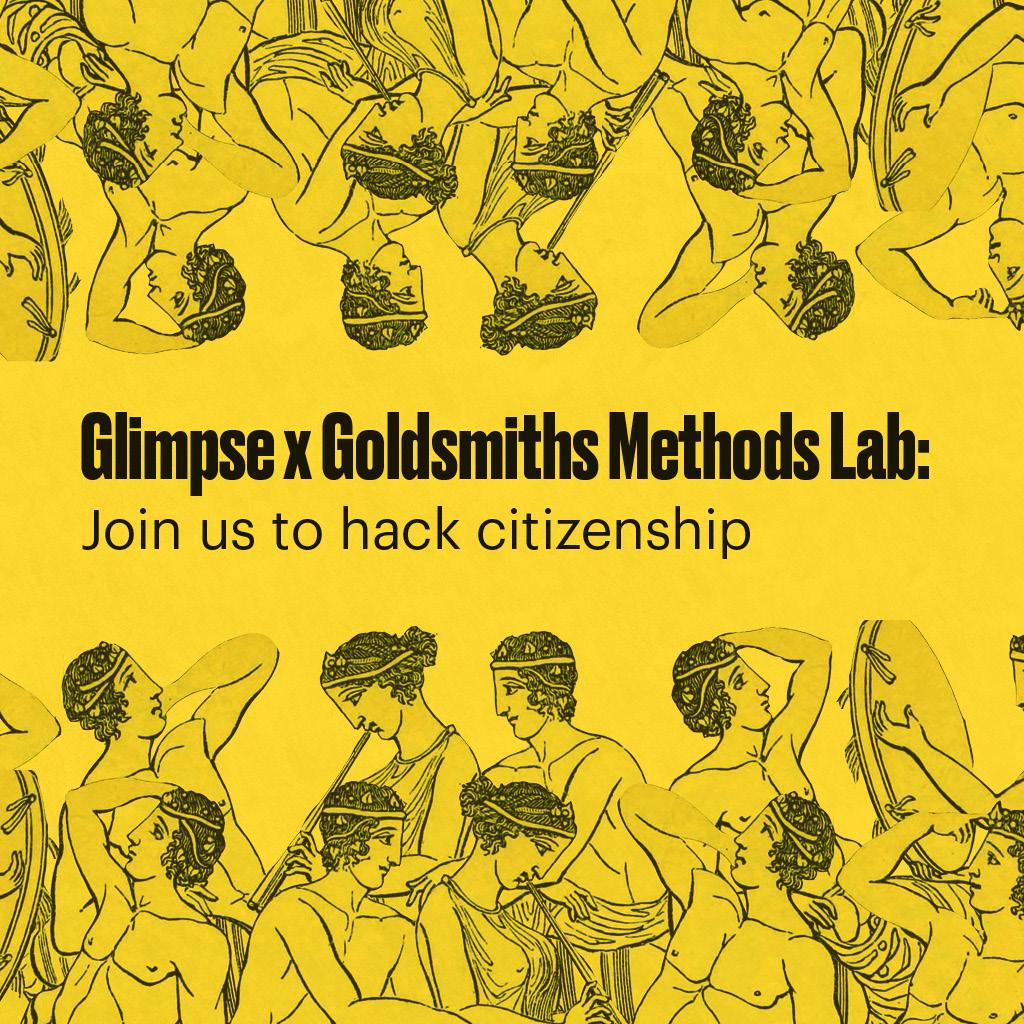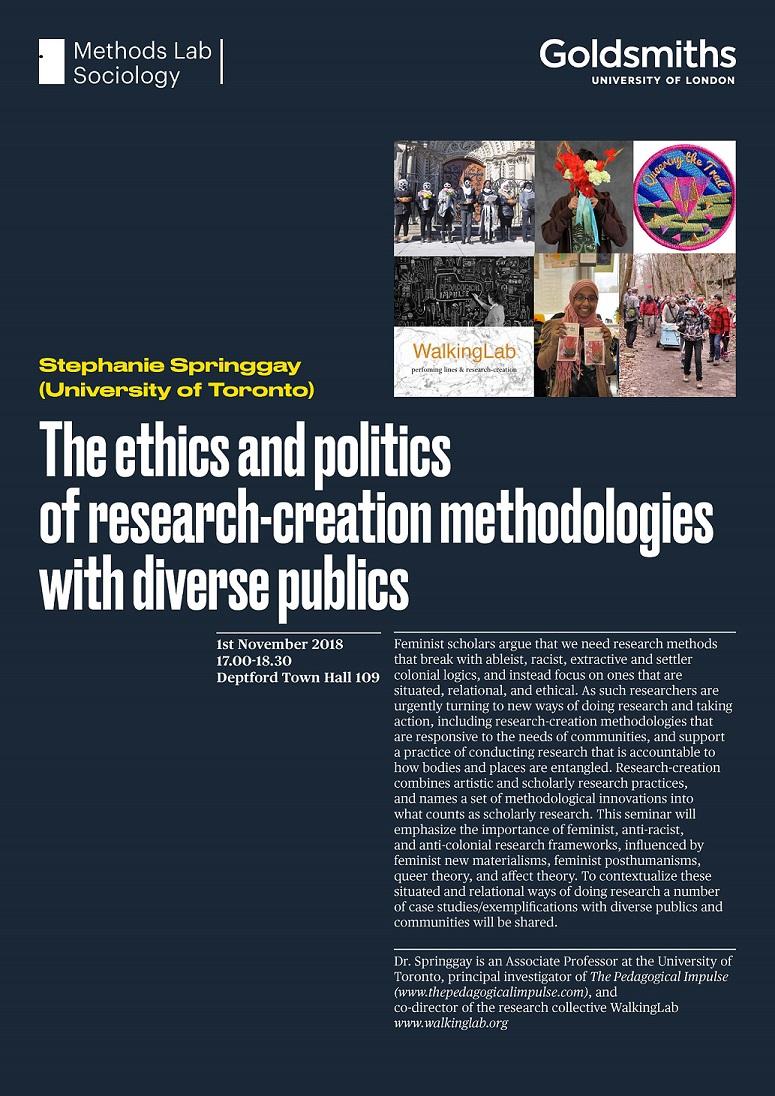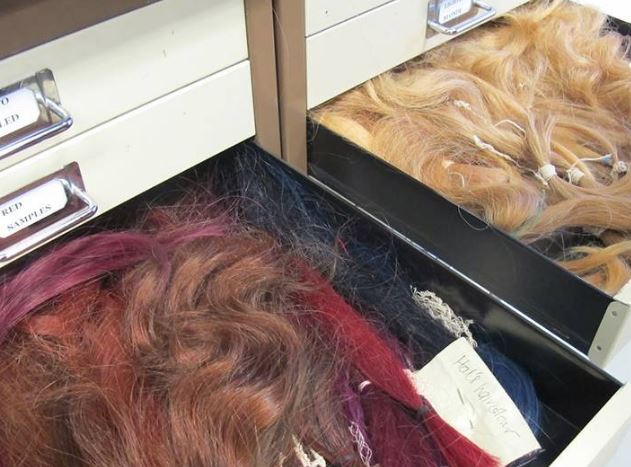Methods Lab Events Archive
Article
Marketing Global Justice – How Justice became Marketable in the 1990s (2017)
Christine Schwöbel-Patel, Discussant: Kate Nash
Work In Progress Research Seminar, Unit For Global Justice
Friday 17 March 2017
RHB 141
4.00 – 6.00 PM
‘Monopolising’ justice, ‘branding’ international organisations, identifying ‘stakeholders’ for peace and security, and getting ‘returns on your investment’ has become common parlance in the global justice sector. Whether marketing terminology is used literally (what is the monetary value) or in a more metaphorical, loose understanding (what is the persuasive value), speaking in these terms about global justice is commonplace. This paper is part of a research project which analyses this terminology as indicative of a deeply rooted market rationale of global justice projects. I argue that the idea of individual criminal accountability has become the foremost understanding of global justice because it is the most competitive of propositions within the global justice sector; demonstrating how it is both a symptom of the neoliberal world in which we live as well as productive of it.
In this paper, I will explore the historical aspects of the marketing of global justice. The starting point is the intersection between the rise of branding as a marketing practice and the rise of individual criminal responsibility as a global justice project. My focus is on the 1990s as a time in which both branding and international criminal justice, although having histories predating it, came to new prominence.
Beyond Good and Bad practice: Collaboration, Creativity and the Value of Failure (2016)
Wednesday, 16 November 2016
1100-1600
RHB 304, Goldsmiths University of London
The terms ‘participation, collaboration and co-production are becoming ubiquitous. A range of actors in the higher educational sector are taking an increased interest in working with others. The notion of ‘working with others’ often entails entering into research or ‘advisory’ relationships with external organisations, working in partnership and collaboration with colleagues and departments form other institutions on scale which spans the a local to the global. Research partnerships between higher educational institutions and non-academic partners are increasingly favoured by funders. They are seen as fostering relationships between institutions, across disciplines, offering good value for money, knowledge exchange and public engagement. Simultaneously there has been a growing interest in social art practice, and ‘practice-based’ or ‘practice -led’ research. This reflects an interest in the potential of art practice to extend the possibilities of knowledge production, and articulating this in meaningful ways to diverse publics.
Although these relationships arise out of a desire to do things better by doing things together, in their realisation these arrangements , which require that we work closely with others, are filled with internal and external tensions, misunderstandings, differing expectations and unequal power relations. In the exchange between practice and education historical, institutional and social assumptions and traditions are exchanged and reproduced. The ‘success’ of collaborations relies on multiple factors, not least a commitment to conduct careful, ethical collaboration and dialogue.
Taking as its starting point the “ Nine Urban Biotopes, an international artist residency exchange, this seminar examines the challenges of collaborative practice at an individual and institutional level and the local and global politics of collaboration.
This seminar invites practitioners, /artists/researchers working collaboratively beyond the university to come together to share their reflections on ‘good practice’, failure and learning in regard to collaboration.
It asks:
What are the bad practices developing in collaboration, impact and public engagement initiatives?
What are the challenges of working with a foot inside and outside the university?
What are the benefits of collaboration and how are they distributed? Who benefits from collaboration and how?
How can the power relations of practice be interrogated?
How are the ‘rules’, ‘norms’, ‘habits’, ‘traditions’, and ‘terminology’ reproduced and exchanged.
Free, all welcome.
Border Stories: Nick Thorpe and Olumide Popoola in conversation (2016)
Wednesday, 16 November 2016
13.00-15.00pm
RHB 300a, Goldsmiths University of London
In this discussion Central Europe correspondent for the BBC, Nick Thorpe and writer and lecturer Olumide Popoola will talk about their respective work in Hungary (journalistic) and the Jungle Camp in Calais (fiction).

"Look at all these borders, foaming at the mouth with bodies
broken and desperate" (Warsan Shire, 2011:25)
Discussions of immigration and immigration control, securitisation and illegality have become more pressing in recent years. According to the United Nations Population Fund, in 2015, 244 million people, or 3.3 per cent of the world's population, lived outside their country of origin, with increasing numbers of people being forcibly displaced as a result of conflict, violence and human rights violations (UNPF, 2016).
Harrowing scenes of what has become known as the Mediterranean ‘refugee’ or ‘migrant crisis’ play out in the media almost daily, as more people fleeing war, violence and poverty in Africa and the Middle East try to find safety in Europe. Sometimes, these lives have faded from our screens and pages as another spectacle has caught journalistic and public attention, but these dangerous journeys and the trauma and deaths — ‘bodies broken and desperate’ — that they entail continue. How to tell and do justice to the stories of these men, women and children?
Digital Security / Anti-Surveillance Masterclass (2017)
Wednesday 18th October
Margaret McMillan Building (formerly EB) 109
12.00pm-3.00pm
Doing digital research requires researchers keep themselves, respondents and data safe. This is becoming increasingly critical and complicated. In collaboration with Tom Sanderson of the Centre for Investigative Journalism (CIJ), Methods Lab is hosting a bespoke digital security/anti-surveillance masterclass to teach (or refresh) Sociology students on how best to do online searches on topical subjects, encrypt sensitive communications and safely secure data.
Methods Lab Annual Lecture (2017)
Methods Lab Annual Lecture
Wednesday 1st November
RHB 137a
4pm to 6pm, with drinks reception
This year's Methods Lab Annual Lecture brings together speakers from social activism, theatre and architecture to explore links between academic research and inventive, interdsiciplinary initiatives inside and outside of the academy. Speakers will reflect on how creative mis/use of methods and tools of the trade can challenge viewers, disrupt cultural discourse and open up new landscapes for critical discussion. The panel is chaired by the incoming Methods Lab Directors Kat Jungnickel and Beckie Coleman.
Sarah Ellis
Digital Director of the Royal Shakespeare Company who in collaboration with Intel and in association with The Imaginarium Studios produced a high-tech version of The Tempest in which one of the characters was digitally animated on stage.
James Turner
Founder of Glimpse and is behind CATS - Citizen Advertising Takeover Service which used crowdsourced funding to replace all the advertising spaces in Clapham Tube station with images of cats.
Gemma John
Social anthropologist who researches and writes about behaviour in the built environment and has recently set up Human City, a spatial research, design strategy and innovation consultancy.
Please register a place by emailing sociology@gold.ac.uk or at Eventbrite
Glimpse x Goldsmiths Methods Lab (2018)
Glimpse x Goldsmiths Methods Lab

10am-2pm
12 June 2018
Margaret MacMillan
Building, Room 220
Voting, marching, picking up litter - important, but for many also boring and mundane.
This workshop will explore how we can make citizenship resonate meaningfully with people.
James Turner and Zac Schwartz from Glimpse are coming to Goldsmiths to explore how the tools and techniques of modern branding and communications might be put to work differently to revitalize citizenship and mass civic action at a time when the world really needs it.
Think about what is important to you. Bring ideas. Work with others
to generate more. Learn from communication experts. We’ll see if we can turn the ideas we generate into actionable plans and projects.
Glimpse is a cutting edge creative collective which seeks to inspire positive social change. Instead of talking about the problem, they create a ‘glimpse’ of a world where it has been ? fixed and use creativity to make that come to life.
Their first project the Citizens Advertising Takeover Service replaced all the adverts at a London Tube station with pictures of cats. Their recent Choose Love pop up store in Soho took over Black Friday to help people buy real products for refugees.
The Methods Lab experiments with inventive ways of doing sociology. Co directed by Beckie Coleman and Kat Jungnickel, it supports and runs events that explore how social research can be responsive to social life, to bring it alive.
Making things to make sense of things... with Hair (2018)
Making Things to Make Sense of Things: Hair
3 May 2018, 3:00pm - 5:00pm
150, Richard Hoggart Building
A methods-orientated workshop for social science students interested in exploring what a methodological attention to matter could bring to their own research projects.
This is a hands-on, creative, experimental methods-orientated workshop designed for social science students who are interested in exploring what a methodological attention to matter could bring to their own research projects.
During the workshop, participants will craft with hair in order to consider what a physical engagement with the materiality of a research object might bring to their academic enquiry.
Participants are asked to provide some hair – their own, a friend’s, a pet’s, hair they’ve found on the street, from the hairdressers – for the group to craft with. In response to a set of provocations, we will then craft using the hair and other materials with an attention to what our multisensory, physical and affective engagement with the materiality of the hair might offer to a sociological investigation of hair.
Drawing on new materialist scholarship which highlights the vibrancy and agency of matter and attempts to decentre the human subject (Alaimo and Hekman 2008; Bennett 2010; Coole and Frost 2010), this workshop corresponds to a move away from words, interviews and surveys as sociological methods of enquiry to thinking about what people and indeed objects do and what they do together in the unfolding of the social world. The workshop will offer an opportunity to explore how making things and how making things with things can enliven our sociological methods and sharpen our attention to the non-textual registers of social life.
When considering what materials do, hair is useful to think with. Both on and off the body, hair occupies a liminal state between human and nonhuman, it is dead and yet it is defined by its life-force (Miller 2008) carrying a material record of its owner’s life (Holmes 2014). Off the body, it quickly becomes ‘matter out of place’ (Douglas 2002) with a capacity to repulse. The way we wear our hair is very personal and at the same time entirely public. Hair is gendered and classed. It carries racialised histories. Worn long or short, straightened or in an Afro, dyed or left to go grey, removing or leaving body hair, hair can also be politicised. We do not trust just anyone with our hair, hairdressers are carefully selected and followed from salon to salon. This is highly skilful labour and yet often undervalued and hazardous to health. The materiality of hair, then, offers a range of possibilities for our sociological imaginations.
The workshop is limited to 20 places.
The Ethics and Politics of Research-Creation Methodologies with Diverse Publics (2018)

Stephanie Springgay (University of Toronto)
1st November 2018
17.00-18.30
Deptford Town Hall 109
Feminist scholars argue that we need research methods that break with ableist, racist, extractive and settler colonial logics, and instead focus on ones that are situated, relational, and ethical. As such researchers are urgently turning to new ways of doing research and taking action, including research-creation methodologies that are responsive to the needs of communities, and support a practice of conducting research that is accountable to how bodies and places are entangled. Research-creation combines artistic and scholarly research practices, and names a set of methodological innovations into what counts as scholarly research. This seminar will emphasize the importance of feminist, anti-racist, and anti-colonial research frameworks, influenced by feminist new materialisms, feminist posthumanisms, queer theory, and affect theory. To contextualize these situated and relational ways of doing research a number of case studies/exemplifications with diverse publics and communities will be shared.
Dr. Springgay is an Associate Professor at the University of Toronto, principal investigator of The Pedagogical Impulse (www.thepedagogicalimpulse.com), and co-director of the research collective WalkingLab (www.walkinglab.org).


